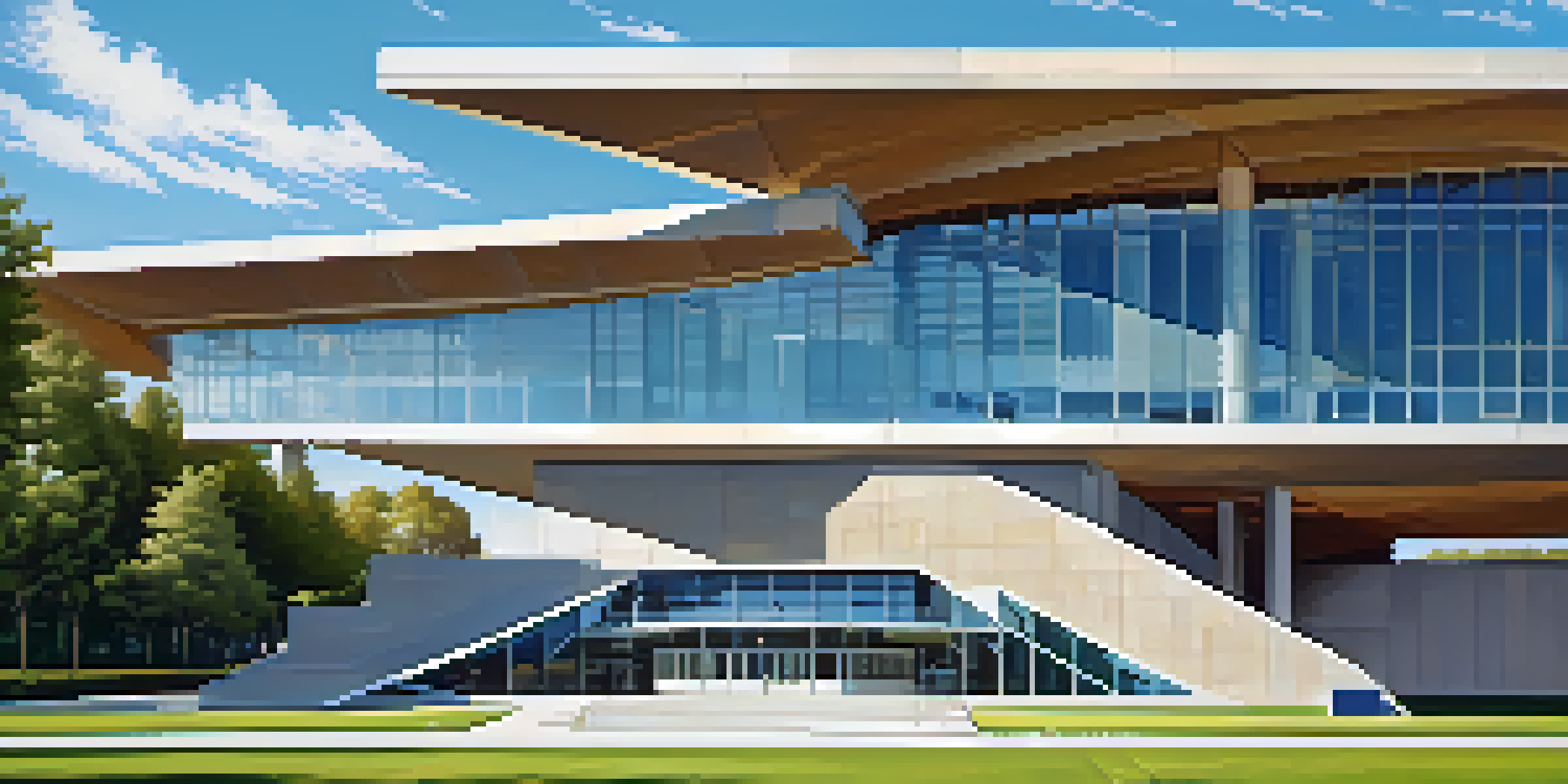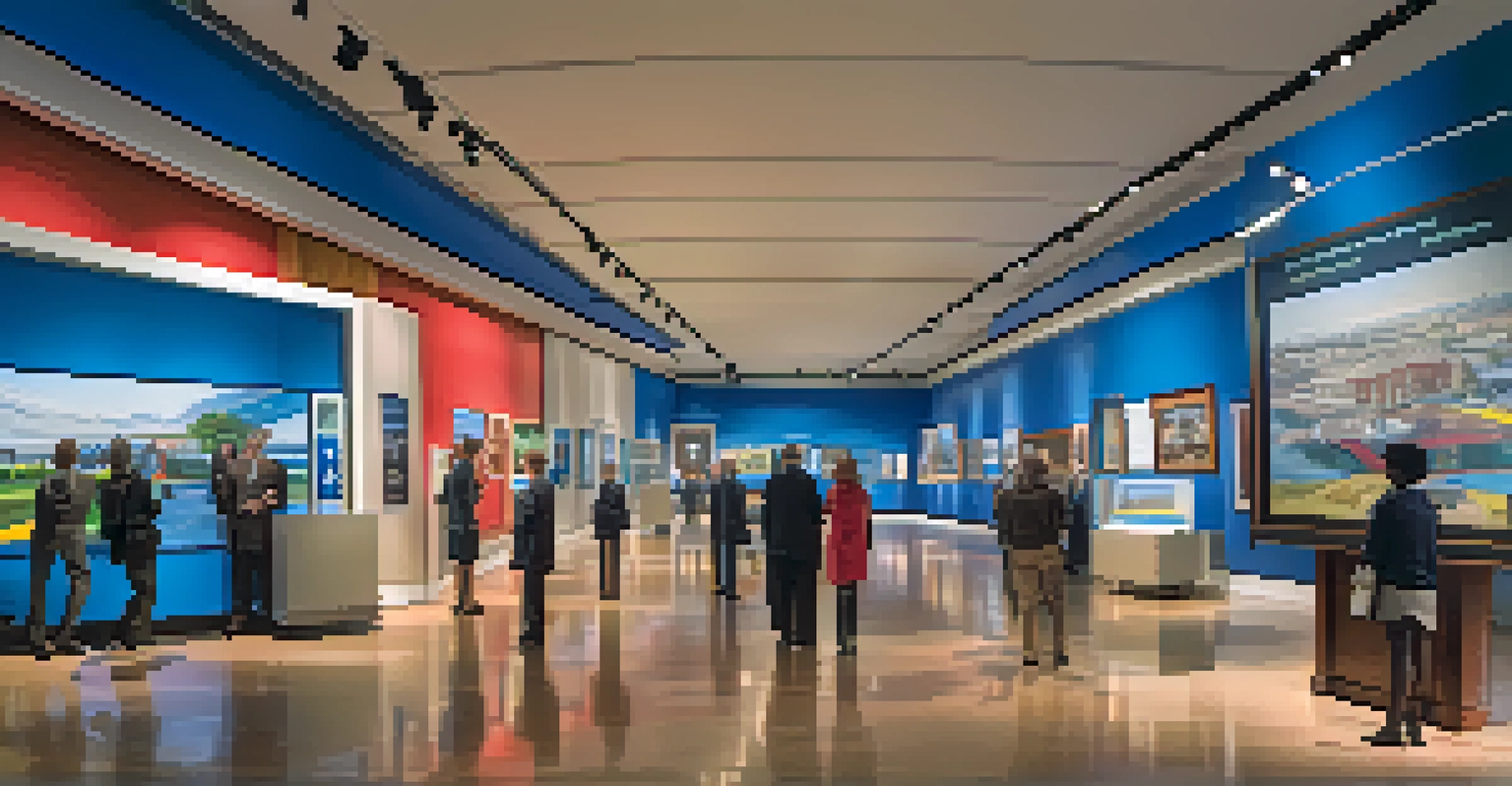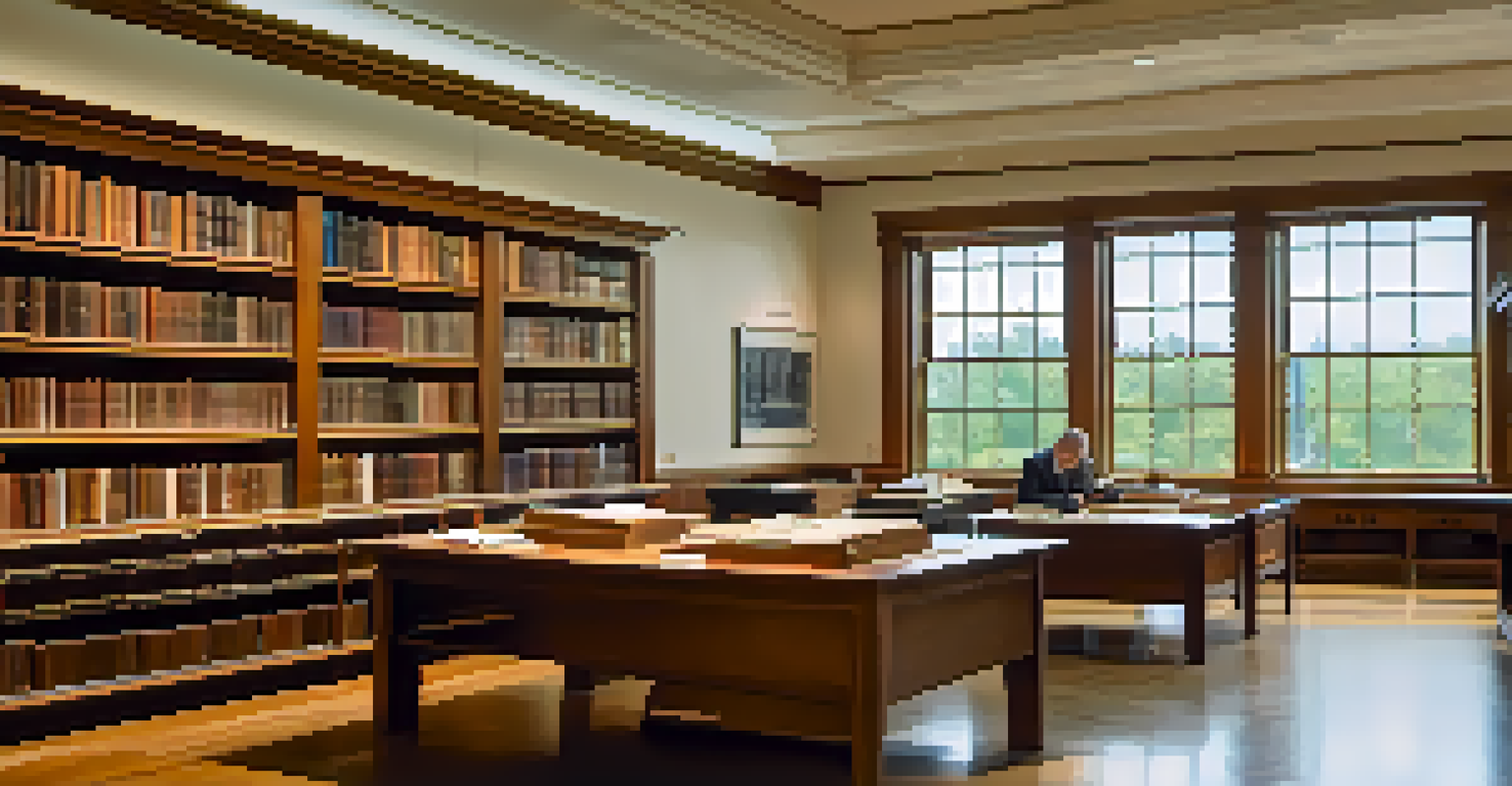The John F. Kennedy Presidential Library: Legacy and Learning

A Brief Overview of the JFK Presidential Library
The John F. Kennedy Presidential Library and Museum, located in Boston, Massachusetts, is dedicated to the life and legacy of the 35th president of the United States. Opened in 1979, the library serves not only as a repository for Kennedy's papers but also as a vibrant space for public engagement. Visitors can explore exhibits that reflect Kennedy’s vision for America and the pivotal moments of his presidency.
Ask not what your country can do for you—ask what you can do for your country.
Designed by renowned architect I.M. Pei, the library's striking structure symbolizes a bridge between the past and the future. The building itself is an iconic representation of Kennedy’s ideals, showcasing modern architecture that mirrors his progressive policies. The library stands as a testament to the enduring influence of Kennedy's presidency on American culture and politics.
As a part of the National Archives and Records Administration, the JFK Library is essential for scholars, students, and history enthusiasts. It houses millions of documents, photographs, and audiovisual materials that tell the story of Kennedy’s life and presidency. Whether you’re a casual visitor or a serious researcher, the library offers a wealth of information and inspiration.
The Legacy of John F. Kennedy
John F. Kennedy's legacy is multifaceted, encompassing civil rights, space exploration, and global diplomacy. His famous call to land a man on the moon by the end of the 1960s not only spurred scientific advancement but also united the nation in a common goal. This vision still resonates today, inspiring future generations to dream big and push boundaries.

Kennedy's commitment to civil rights, highlighted by his support for the Civil Rights Act, marked a turning point in American history. His leadership during the Cuban Missile Crisis showcased his ability to navigate complex geopolitical challenges, emphasizing the importance of diplomacy over conflict. These aspects of his legacy continue to shape discussions around leadership and responsibility in politics.
JFK Library: A Hub of Knowledge
The JFK Presidential Library serves as a vital resource for scholars and the public, offering extensive archival materials and educational programs.
Moreover, Kennedy's emphasis on public service and civic engagement has inspired countless individuals to contribute positively to society. His famous quote, 'Ask not what your country can do for you—ask what you can do for your country,' remains a rallying cry for civic duty. This enduring message encourages active participation in democracy and community service.
Educational Programs at the Library
The JFK Presidential Library offers a variety of educational programs aimed at fostering a deeper understanding of democratic principles and civic engagement. These programs cater to students of all ages, from elementary school to college, providing resources that align with curriculum standards. Through workshops, lectures, and interactive exhibits, participants engage with Kennedy’s ideals in meaningful ways.
The goal of education is the advancement of knowledge and the dissemination of truth.
One standout initiative is the 'Teaching American History' program, which equips educators with tools to teach about Kennedy's impact on American history. By utilizing primary sources and engaging discussions, teachers can inspire students to explore the complexities of the past. This program emphasizes critical thinking and encourages young learners to draw connections between history and their own lives.
Additionally, the library hosts events like the annual 'JFK Profile in Courage Award' ceremony, celebrating those who have demonstrated political courage. Such events not only honor Kennedy’s legacy but also serve as a platform for discussing relevant social issues. By connecting the past with current events, the library remains a dynamic hub for learning and exploration.
Archival Resources and Research Opportunities
The JFK Presidential Library holds a vast collection of archival resources that are invaluable for researchers and historians. With over 200,000 pages of documents, including speeches, letters, and memos, the library provides a comprehensive view of Kennedy’s presidency. Access to these materials allows for in-depth research on various topics related to his administration.
Researchers can also explore the extensive audiovisual archives, which include film footage, photographs, and audio recordings. These resources bring to life the events of the Kennedy era, offering unique insights into his leadership style and the political climate of the time. The ability to analyze these primary sources enriches the understanding of history.
Kennedy's Enduring Legacy
John F. Kennedy's influence on civil rights, space exploration, and public service continues to inspire civic engagement and discussions on leadership.
For those unable to visit in person, the library offers online access to many of its collections. Digital resources make it easier for anyone, anywhere to engage with Kennedy’s legacy. This commitment to accessibility reflects the library's goal to educate and inspire an ever-wider audience.
Public Engagement and Community Events
Community engagement is a cornerstone of the JFK Presidential Library’s mission. The library hosts a variety of public events, from lectures to film screenings, designed to foster dialogue and reflection on important social and political issues. These events attract a diverse audience, encouraging participation and the exchange of ideas.
One popular series is the 'JFK Library Forums,' where prominent speakers discuss topics ranging from politics to social justice. These forums create a space for community members to connect with experts and engage in meaningful conversations. By addressing contemporary challenges through the lens of Kennedy’s principles, the library remains relevant and impactful.
Moreover, the library collaborates with local schools and organizations to promote civic education initiatives. By partnering with educators, the library enhances learning experiences and inspires students to become informed citizens. This commitment to community outreach ensures that Kennedy’s legacy continues to resonate with future generations.
The Role of the Museum in Preservation
As part of the JFK Presidential Library, the museum plays a crucial role in preserving artifacts that represent Kennedy's life and presidency. From his personal belongings to official documents, these items provide a tangible connection to history. The careful curation of exhibits ensures that visitors can experience the past firsthand.
Exhibits are designed to be engaging and informative, utilizing technology to enhance the visitor experience. Interactive displays and multimedia presentations invite guests to explore Kennedy’s achievements and challenges. This innovative approach not only captivates audiences but also deepens their understanding of historical context.
Engaging Community Through Events
The library fosters community engagement by hosting public events that encourage dialogue on social and political issues, connecting Kennedy's ideals to contemporary challenges.
The ongoing preservation efforts at the museum are vital for future generations. By safeguarding these artifacts, the library ensures that Kennedy’s story remains accessible and relevant. This commitment to preservation reflects a broader mission to honor the past while inspiring a forward-looking perspective.
Visiting the JFK Presidential Library
Planning a visit to the JFK Presidential Library is an enriching experience for individuals and families alike. Located on Columbia Point in Boston, the library offers stunning views of the city and harbor, making it a picturesque destination. The library is easily accessible by public transportation, and ample parking is available for those driving.
Visitors can explore the museum, participate in educational programs, and enjoy the beautiful grounds. The library's design encourages exploration, with spaces that invite reflection and learning. Whether you’re a history buff or simply curious, there’s something for everyone at the library.

Before you go, it’s worth checking the library’s website for current exhibits and events. This ensures that you can make the most of your visit and take advantage of special activities. A trip to the JFK Presidential Library is not just a journey through history; it’s an opportunity to engage with the ideals that continue to shape our society.